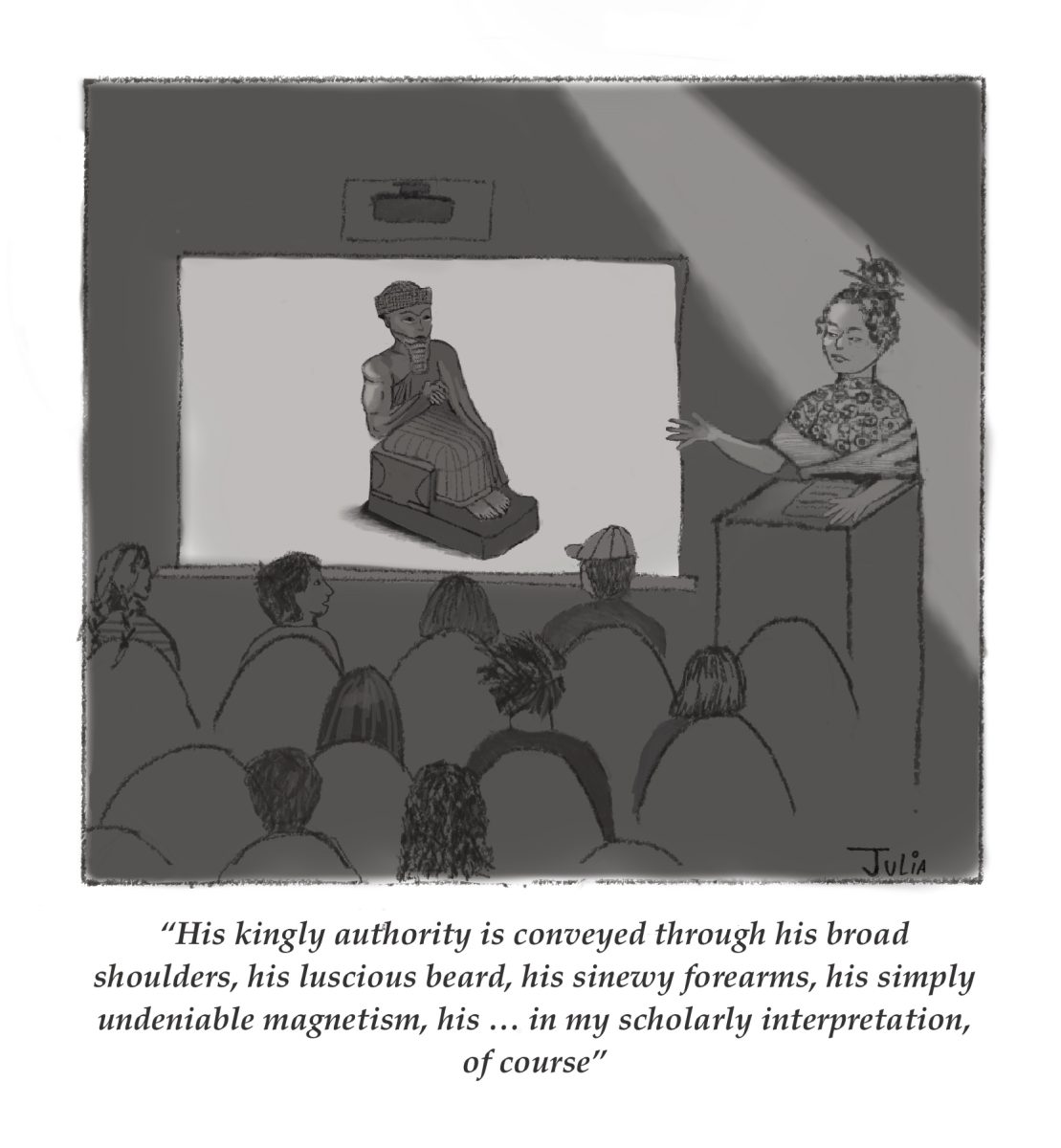On April 17, we witnessed egregious faculty-on-faculty aggression in Hollander Hall. We were walking with our professor, an Asian American professor of English and American Studies, when Professor Kathryn Kent ’88, chair of the English department, passed by on her way to a departmental meeting. Our professor asked if the meeting would discuss Assistant Professor of English Kimberly Love, who cited the College’s violence as the reason for her medical leave this semester.
Since our professor is the person who was targeted in this situation and most harmed, we have deemed it inappropriate to name her in this article.
Professor Kent immediately began to raise her voice at us. She shouted obscenities and publicly berated our professor. She tried to turn us against our professor by suggesting that it was our professor’s fault that Kent had made a scene. To be clear, all that our professor had done was ask an innocuous question and, unlike Kent, never raised her voice during the entire encounter. Furthermore, Jamie Kasulis ‘20 voiced that Professor Kent’s behavior was inappropriate, and firmly expressed her discomfort with Kent’s presence. It took multiple verbal requests from said student before Kent finally walked away.
The only thing unique about this incident is that there were students there to witness it. In reality, this sort of violence, as well as numerous other forms of it, have been going on at the College for years. The fact that claims of violence are so often belittled and dismissed by disciplinary bodies, administration, faculty and students are in itself a mechanism of institutional violence. The silencing and vilification of faculty of color (FoC) who speak out about political and institutional issues is violence. The constant request for more evidence of racism is also violence because it invalidates the ways in which racism harms our mental health and our bodies. In all of these situations, the burden of emotional labor, accountability and healing is disproportionately held by FoC.
Racism is foundational to the structure of the College. Its effects are slow, suffocating and silencing. It permits people to shrug their shoulders and ask, “What violence?” It permits people like Kathryn Kent to escape accountability for their actions.
We are writing this piece because we refuse to comply with this violence. We are writing this as two students of color who are infuriated about the ways in which our FoC mentors are being treated. And we are calling on all facets of our community to stand with us in rallying behind FoC and holding Kent accountable.
For this reason, we are calling on Kent to resign as chair of the English department immediately. Kathryn Kent, you have failed to fulfill your responsibilities to your FoC colleagues and students of color. But unlike them, you have had the privilege of receiving the benefit of the doubt over and over again. In your resignation letter, you should do the following: Acknowledge that your tenure as chair has been fraught with racist violence, which you have both perpetuated and failed to adequately address; apologize to the faculty whom you have harmed; and actively seek to make repairs and reexamine your privilege. You can take for granted that Williams is your home, while students and faculty of color have to fight to make a home out of Williams. It is behavior exactly like yours that makes it so hard for people of color to remain here.
To our FoC mentors: Thank you for being here. Thank you for looking out for us on top of looking out for yourselves. Thank you for working to create change, call out violence and make this place a safer community for us all. We see you and we’re with you.
To the administration: We call on you to remove Kent from her position if she does not resign by the end of the semester. Failing to do so clearly indicates your disinterest in protecting people of color on this campus. Furthermore, your reliance on slow, bureaucratic processes fails to take seriously the urgency of the situation. Students and faculty of color have been rallying at three times the speed with half the resources to do the work that the administration fails to do. While they are doing that, it is on you to educate yourselves on what you need to know in order to do your job, which is to protect this campus’ students, faculty and staff.
To the entire community: What happened on April 17 is just the latest example – one which has the privilege of becoming public – of a legacy of institutional violence. The issues that we raise in this piece are not merely interpersonal, but systemically related to the broader structural violence that is ingrained in the culture of this College. As such, let’s acknowledge the work that CARE Now has been doing all year to show love for FoC, to hold the College accountable, to envision a better Williams and even to outline the steps we need to take to manifest that vision. Let’s also acknowledge that this work did not begin with CARE Now, but has been taken up by students, faculty and staff for decades. But the burden of this work cannot and should not be left to the usual groups of individuals – it’s on all of us to take seriously the ways in which we are implicated in the College’s violence, and to continually work to undo that harm.
As for us, we will never move through Hollander Hall in the same way again. We will never take an English class again. And we will always wonder what faculty of color are going through that we don’t know about.
Jamie Kasulis ’20 is a computer science major from Berlin, Conn. Emily L. Zheng ’20 is an economics and computer science major from Fremont, Calif.




